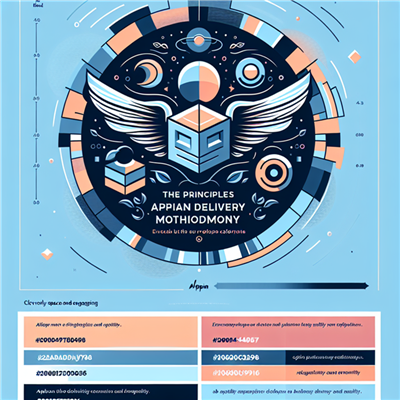
Delivery managers are a crucial part of an organization. They are responsible for ensuring products and services are seamlessly delivered to all clients. They assist the clients in setting up and installing their organization’s tools and products. However, their role doesn’t stop here.
They also lead project teams, manage budgets, and monitor progress, among other things. They ensure that the user experience is seamless and satisfactory. If you are intrigued by the career and would like to know more about it, read on. In this blog, we have discussed the roles and responsibilities, skill requirements, job descriptions, and certifications of a delivery manager.
Who is a delivery manager?
A delivery manager leads a team that manages the delivery of products and services to the customers and ensures they receive a superior customer experience. They do this by ensuring that service delivery and service support delivery are on time and delivered to the client effectively.
Delivery managers maintain a meaningful relationship with the stakeholders and end-users. Their role encompasses both technical and administrative aspects. That is why hardworking, highly skilled, and natural leaders with excellent interpersonal skills are more likely to succeed as a delivery manager.
Delivery manager roles and responsibilities
A delivery manager works with the team to provide a superior customer experience. The roles and responsibilities of a delivery manager include the following.
- Ensure on-time delivery of all orders.
- Operate all equipment safely and effectively
- Ensure quality in product and service delivery
- Lead review meetings regularly
- Maintain records and reports to show the activities conducted by the department
- Maintain a harmonious relationship with clients and stakeholders
- Monitor and schedule employees' activities daily
- Solve client needs by using suitable judgment
- Manage risks, track orders, and manage dependencies
- Ensure that the team maintains safety policies
- Sort, scan, and load tools and products on trucks and prepare for shipping
- Conduct inventory reconciliation regularly
Delivery manager job description
With the rise in competition, service delivery managers are in high demand across all industries. This is because they are well-trained and competent in dealing with customer feedback, solving their problems, driving satisfaction, and meeting demands. A job description for a service delivery manager can look like the following:
Description
We require a sincere and hardworking service delivery manager who can maintain excellent customer relationships and improve customer satisfaction. The delivery manager will have to perform several duties, including the following.
Service delivery manager responsibilities
Service management
- Maintain a high-performance level
- Manage IT services desk and desktop support
- Take accountability for any incidents and coordinate with involved parties
- Establish good communication between stakeholders
- Gain an in-depth understanding of projects and analyze customer expectations
Technical perception
- Collaborate with design and product teams to set standards
- Facilitate continuous improvements in the desktop
- Set high-level performance benchmarks
Performance and quality management
- Recommend improvements for delivery processes
- Give accurate reports regarding delivery performance
- Lead personnel management
- Develop good relationships with their team and stakeholders to enable effective communication
Other responsibilities
- Maintain positive relationships with everyone
- Manage finance and budget
- Look for ways to reduce costs without compromising quality
- Assess customer feedback and make improvements
- Follow deadlines and organize review meetings
Service delivery requirements
- Bachelor’s degree in a related subject
- Experience in leading physical and virtual teams
- Exceptional customer management skills
- Strong project management and quality control skills
- Strong leadership skills
- Solid problem-solving skills
- Superior communication and interpersonal skills
- In-depth knowledge of ITIL principles
- Experience in escalation procedures and incident management
- A proactive attitude
Skills required to become a delivery manager
Service delivery managers require many skills to do their jobs efficiently. Here are some of them.
Customer service
A service delivery manager must have the ability to listen to customers, understand their issues, and find innovative solutions. Customer service is one of their primary responsibilities and they should be able to showcase empathy while dealing with them.
Exceptional communication skills
Effective communication involves the ability to convey and receive a message. A service delivery manager has to communicate with many individuals in the course of their duties. This includes communicating with customers, stakeholders, and team members. Therefore, exceptional communication skills are a must for service delivery managers.
Detail-oriented
A service delivery manager has to ensure all the tasks are completed without making mistakes. Since they lead a team and manage customer needs, they must be detail-oriented. Making mistakes humanely, however, is crucial that you make as few of them as possible.
Leadership
Service delivery managers are leaders and have to manage their teams. They have to guide all their team members and help them improve their skills. Therefore, they must have leadership skills.
Time management
Time management is essential for almost every job role. It is the ability to work efficiently by prioritizing work properly. As a delivery manager, time is of utmost importance. On-time delivery is essential to maintain the trust and customer satisfaction. You must use time management skills to conclude your work on time.
Organization
As a delivery manager, you must be organized. You must have a stellar ability to plan, structure, and do tasks according to your priorities. Often, you will be managing more than one customer. Therefore, you must be able to separate the customer demands and requirements using delegation and organizational skills.
Problem-solving
A service delivery manager has the primary responsibility of maintaining good relationships with customers. This involves understanding their demands, listening to their problems, and finding effective solutions to them. Therefore, you must have stellar problem-solving skills.
Collaboration
Service delivery managers do not work in isolation. They have to work in collaboration with their team members and stakeholders and reach their goals. Therefore, you must have good collaboration skills.
Computer proficiency
Service delivery managers use computers and other technology as a part of their jobs. Therefore, they should be proficient in computers and basic techniques that can help them do their job more effectively.
Delivery manager salary and career path
Service delivery managers receive a high package, along with a good reputation, job security, and significant room for growth. According to AmbitionBox, service delivery managers in India earn an average annual salary of Rs. 18 lakhs per annum. The salary ranges between Rs. 8 lakhs to Rs. 30.5 lakhs per annum. With the growth in experience, the salary range also increases.
The top employers employing service delivery managers include TCS Limited, IBM India, and Cognizant Technology Solutions Limited. A service delivery manager can grow in their field to become a senior project manager, information technology director, and chief information officer.
How to become a delivery manager?
A service delivery manager needs a bachelor’s degree and some experience. The common job roles include project manager and senior project manager. Getting a certification can also increase your chances of getting your dream job and package.
Here are the steps you should follow to become a delivery manager.
Get education
The first step is to explore how much education you need to become a delivery manager. Most delivery managers have a bachelor’s degree. However, some also pursue a master’s degree before entering the job market.
You can get a bachelor’s degree in business management, computer science, or any related subject.
Develop skills
Before applying for a job, you should develop the necessary skills required to become a delivery manager. The top skills of a delivery manager include customer service, client management, and project management. You must also be excellent at managing communications, solving issues, and problem-solving skills. To develop these skills, you can take online courses or do certifications.
Do training/internship
Delivery managers sometimes have to do at least 6 to 12 months of on-the-job training. This training helps them learn the specific skills required by their organization. It also enables them to get familiar with the organization's business, tools and technology, and clients.
Learn responsibilities
Before becoming a delivery manager, you must possess knowledge of their responsibilities. Delivery managers have to lead teams, manage client relationships, and ensure quality and quick delivery, among other responsibilities. This will help you decide whether you are a good fit for the role or not.
Prepare your resume and apply for a job
When you are done with your education and learning the skills, you can create your resume. Use the resume to highlight your skills, certifications, and your plus points. Also, highlight any experience you have.
Start looking at online job boards and apply for the roles. And do not forget to be confident and believe in yourself.
Certifications for a delivery manager
Getting a certification can significantly improve your chances of getting your dream job. Certifications validate your skills and expertise and help you stand out from other candidates. With the right experience and certification, you can also negotiate better salaries and promotions.
Here are the most popular certifications for delivery managers.
Project Management Professional (PMP)
Offered by Project Management Institute (PMI), PMP certification validates your skills in leading and managing project teams. This is the most popular certification in the project management field. Having this certification will certainly give you an edge over other candidates as it recognizes your skills in three core areas: people, process, and business environment.
You will have to pay an annual fee to maintain your certification. Here are the certification details you should be familiar with.
Eligibility criteria: You must have a four-year degree and 36 months of experience in leading projects. Alternatively, you can have a high school diploma and 60 months of experience in leading projects. In both situations, you must have 35 hours of project management education.
Exam details: The exam will have 200 MCQs with a duration of four hours.
Agile Project and Delivery Management Certification
This certification is provided by ICP and validates your skills in successful Agile project delivery through various approaches. It covers various skills, including delivery agility, planning and monitoring, and empowering the team.
The certification is beneficial for project managers, product managers, business analysts, and Scrum Masters, among other people. It offers foundational knowledge of Agile values, principles, and mindsets.
Certified Scrum Product Owner (CSPO)
Offered by Scrum Alliance, this certification validates your knowledge of the Scrum framework and the skills required to manage product backlogs. You will also learn new ways to understand your customer, manage multiple stakeholders’ needs and improve your existing skills.
The certification is ideal for product owners, business analysts, team members, project managers, and product managers. To become CSPO certified, you have to attend an approved training course and pass an exam.
Certified Professional in Agile Delivery Management
ITIL Foundation Certification
ITIL certification validates your understanding of the IT Infrastructure Library framework. This is especially useful for professionals who want to use the best practices of ITIL to improve IT service management.
The certification covers topics like service design, service strategy, service operations, and continual service improvement. The certification exam has 40 MCQs with a duration of 60 minutes. One needs to score at least 65% marks to pass this exam.
Certified ScrumMaster (CSM)
Certified ScrumMaster is offered by Scrum Alliance and validates your expertise in Scrum. It covers the skills and knowledge required to successfully manage projects using Scrum. The topics include fundamentals of Scrum, roles, ceremonies, etc. It also includes practical experience in applying the theory.
The course typically lasts two days and is appropriate for scrum masters, project managers, business analysts, and software engineers. The cost of CSM depends on the cost of training.
Lean Six Sigma Black Belt Certification
Lean Six Sigma Black Belt certification validates your expertise in the Lean Six Sigma methodology. It is suitable for people who want to lead and manage complex projects. This certification also helps you develop skills to mentor and coach teams in the Lean Six Sigma techniques.
The certification takes anywhere between four to six months to finish. Depending on which organization you choose to get your certification from, the prerequisites vary. However, the general rule is that you must be well-versed in the previous Six Sigma belt levels. There are two major organizations offering this certification: ASQ and IASSC. The cost also varies as per the organization.
Conclusion
Delivery managers are in high demand in all industries. And the demand matches the salary offered by the organizations. Highly skilled and knowledgeable delivery managers are an invaluable part of an organization. If you believe you have the skills and dedication to become one, follow the path we have mentioned above.







COMMENT